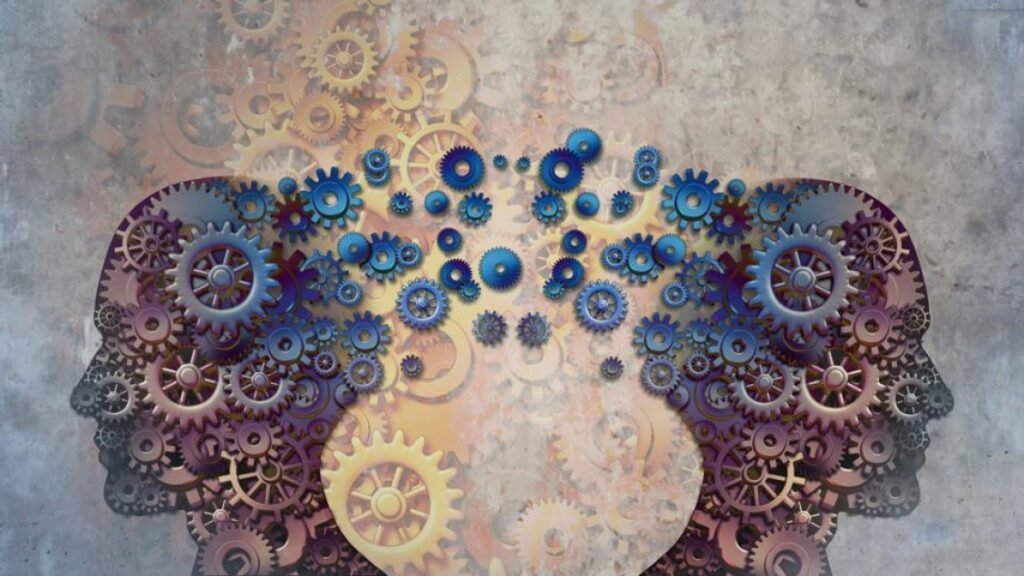Psychology is a fascinating and diverse field of study that delves into the complexities of human behavior, mind, and mental processes. It seeks to unravel the mysteries of why we think, feel, and act the way we do. By examining the cognitive processes that shape our thoughts, emotions, and actions, psychology offers valuable insights into the human experience.
One of the fundamental goals of psychology is to understand and interpret human interactions. By studying how individuals interact with one another and their environment, psychologists gain a deeper understanding of the social dynamics that shape our lives. They explore topics such as communication, social relationships, and the impact of social influences on our behavior.
Another important area of study within psychology is human growth and development. This branch focuses on the various stages of life and how individuals change and evolve over time. From infancy to old age, psychologists examine the physical, cognitive, and emotional changes that occur throughout our lifespan.
Learning and memory processes are also central to the study of psychology. By investigating how we acquire knowledge and retain information, psychologists develop strategies to enhance learning and improve memory. This knowledge is invaluable in educational settings, where educators can apply evidence-based techniques to optimize learning outcomes.
Emotions and feelings play a significant role in our daily lives, and psychology seeks to understand their complexities. By exploring the factors that influence our emotions and how they impact our behavior, psychologists can help individuals navigate their emotional experiences and develop strategies for emotional well-being.
Mental health and disorders are a crucial area of study within psychology. Clinical psychologists specialize in diagnosing and treating mental health conditions, helping individuals overcome challenges such as depression, anxiety, and trauma. By understanding the underlying causes and mechanisms of these disorders, psychologists can provide effective therapeutic interventions and support.
Personality science is another fascinating aspect of psychology. By examining individual differences in traits, behaviors, and thought patterns, psychologists gain insights into what makes each person unique. This knowledge is valuable in various contexts, from understanding team dynamics in the workplace to fostering healthy relationships.
Psychology is a vast field with numerous specializations and branches. Social psychology focuses on how social influences shape our behavior, while cognitive psychology explores the intricacies of mental processes such as attention, perception, and problem-solving. Applied psychology applies psychological principles to real-world settings, such as business, sports, and healthcare.
Psychologists employ a range of research methods and scientific tools to study human behavior and the mind. Through experiments, surveys, observations, and interviews, they gather data to test theories and hypotheses. This empirical approach ensures that the findings are based on evidence and contribute to the body of knowledge in the field.
Furthermore, psychology has practical applications in various domains. In education, psychologists help develop effective teaching strategies and interventions to enhance learning outcomes. In the workplace, they assist in improving communication, team dynamics, and employee well-being. In healthcare, psychologists provide therapeutic support and interventions for individuals experiencing psychological and emotional difficulties.
Overall, psychology is a dynamic and ever-evolving field that contributes to our understanding of human behavior and mental processes. It offers valuable insights into what makes us who we are, and how we can navigate the complexities of our lives. By applying psychological knowledge, we can promote mental and emotional well-being, improve social relationships, and provide support to those in need.
علم النفس هو العلم الذي يدرس السلوك والعقل والعمليات العقلية للإنسان. يهتم علم النفس بفهم وتفسير التفاعلات البشرية والعمليات العقلية التي تؤثر في سلوك الأفراد وتجريدهم من الأفكار والمشاعر والتصرفات.
يغطي علم النفس مجموعة واسعة من المواضيع والمجالات التي تشمل النمو والتطور البشري، وعملية التعلم والذاكرة، والمشاعر والعواطف، والاتصال والعلاقات الاجتماعية، والصحة العقلية والاضطرابات، وعلم الشخصية والسلوك البشري.
تنقسم علم النفس إلى عدة تخصصات وفروع، مثل علم النفس الاجتماعي، وعلم النفس العصبي، وعلم النفس التطبيقي، وعلم النفس التنموي، وعلم النفس السريري، وغيرها. يعمل العلماء والباحثون في مجال علم النفس على إجراء الدراسات والأبحاث واستخدام النظريات والأدوات العلمية لفهم العقل البشري والسلوك البشري وتطبيق هذا المعرفة في مختلف المجالات مثل التعليم، والصحة، والأعمال، والرياضة، والعلاقات الاجتماعية، وغيرها.
علم النفس يساهم في فهم الأفراد وتعزيز الصحة العقلية والعاطفية، ويساعد في تطوير استراتيجيات التعليم والتدريب، وتحسين العلاقات الاجتماعية والعملية، وتوفير الدعم النفسي والعلاج للأشخاص الذين يعانون من اضطرابات نفسية وعاطفية.

علم النفس يتضمن العديد من التخصصات الفرعية التي تركز على مجالات محددة داخل مجال الدراسة الشامل للعقل والسلوك البشري. وفيما يلي بعض التخصصات الفرعية المشهورة في علم النفس:
- علم النفس الاجتماعي: يدرس التفاعلات الاجتماعية وتأثير العوامل الاجتماعية على السلوك والعقل.
- علم النفس العصبي: يركز على الدراسة العصبية للعقل والسلوك، ويعتمد على الأبحاث العصبية وتقنيات التصوير الدماغي.
- علم النفس التطبيقي: يركز على تطبيق مبادئ علم النفس في مجالات مثل التعليم، والصحة النفسية، والإدارة، والرياضة، والتسويق.
- علم النفس التنموي: يدرس التغيرات التي تحدث في العقل والسلوك على مراحل الحياة، بدءًا من الطفولة وحتى كبر السن.
- علم النفس السريري: يركز على تشخيص وعلاج الاضطرابات النفسية والعاطفية، ويشمل العلاج النفسي والاستشارة النفسية.
- علم النفس الشخصية: يدرس الاختلافات الفردية في السمات والصفات الشخصية وكيفية تأثيرها على السلوك والتفاعلات الاجتماعية.
- علم النفس التعليمي: يركز على تحليل وتحسين عملية التعلم والتعليم، وتصميم برامج تعليمية فعالة.
- علم النفس الاستهلاكي: يدرس سلوك المستهلك وعوامل اتخاذ القرارات الشرائية وتأثير الإعلان والتسويق.
هذه مجرد بعض الأمثلة للتخصصات الفرعية في علم النفس، وهناك المزيد من التخصصات والمجالات الفرعية المتنوعة التي يمكن للأشخاص اختيارها والتخصص فيها وفقًا لاهتماماتهم ومساراتهم الوظيفية المستقبلية.

علم النفس التطبيقي في مجال الصحة النفسية مثالًا:
- علاج السلوك الاستهلاكي: يستخدم علم النفس التطبيقي في تطوير برامج علاجية للأشخاص الذين يعانون من اضطرابات مثل الإدمان واضطرابات الأكل، حيث يتم تعزيز سلوكيات صحية وتقليل السلوكيات الضارة.
- العلاج السلوكي المعرفي: يستخدم علم النفس التطبيقي في تطوير وتنفيذ برامج العلاج السلوكي المعرفي للأشخاص الذين يعانون من اضطرابات مثل القلق والاكتئاب، من خلال تغيير سلوكياتهم وتفكيرهم السلبي.
- الاستشارة النفسية في المدارس: يستخدم علم النفس التطبيقي في تقديم الاستشارة النفسية للطلاب في المدارس، للمساعدة في التعامل مع التحديات العاطفية والاجتماعية والأكاديمية.
- التدريب على التواصل والمهارات الاجتماعية: يستخدم علم النفس التطبيقي في تطوير برامج التدريب على المهارات الاجتماعية وتحسين التواصل الفعال للأشخاص الذين يعانون من صعوبات في التفاعل الاجتماعي.
- إدارة الضغوط والتوتر: يستخدم علم النفس التطبيقي في تطوير استراتيجيات إدارة الضغوط والتوتر، من خلال تدريب الأفراد على تقنيات التحكم في الضغط والتفكير الإيجابي.
هذه مجرد بعض الأمثلة، وعلم النفس التطبيقي يساهم بشكل واسع في تحسين الصحة النفسية وتقديم الدعم النفسي والعلاج للأفراد في مختلف المجالات والظروف.

